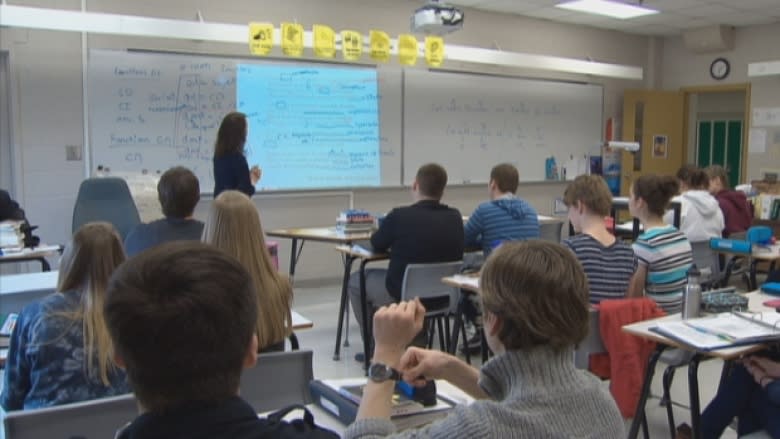Province looks at new rules to stop students from skipping school
Nova Scotia schools will be adopting a provincewide policy on student absences by the beginning of the next school year, Education Minister Karen Casey said Friday.
"We do not want this to be punitive in any way to those students who need support. But we do want to make it clear and teachers are making it clear: They want their students in their class every day," she told CBC's Information Morning Cape Breton.
The department released its draft policy on student absences Thursday.
The new draft policy defines excused absences, how absences need to be explained to schools and how schools will address absences and chronic lateness. This may include suspensions or the loss of course credits at the high school level.
"Attendance has been an ongoing issue that needs to be resolved," said Pamela Doyle, a guidance counsellor and a member of the province's Council to Improve Classroom Conditions, which developed the proposed new rules.
"There are many reasons for students missing class and not all require punitive measures. But some of them do and we need clarification so we can do what it takes to improve attendance overall."
The 14-member committee, made up of mostly teachers as well as a parent and a student, is looking for public feedback by May 9, Casey said.
Parental feedback expected
The minister acknowledged some items in particular will likely get response from parents:
- Medical appointments should be outside of school hours.
- Extra vacation time will be considered an unexcused absence.
- Actions in regard to unexplained absences, such as suspensions, must be a decision by a school-based team and are not to be overturned by the school board.
Casey said absences require "a lot of extra work" by teachers
"There is an expectation that the teacher will be able to work with that student to help them catch up on the work that they've missed, provide work packages for them. That's OK for an excusable absence."
The council hopes to finalize the policy by June so it can be implemented at the beginning of the next school year, she said.
More communication between families, schools
The council would also like to see a pilot project set up for outreach workers to support more vulnerable students who may be dealing with bigger issues, including mental health problems.
"Maybe an outreach worker could also visit students and families at home," Doyle said.
"They might be a great liaison between family and school. We also recognize that some families are reluctant to come into schools at times, based on their previous history or things like that."
The council, which has a $20-million budget over two years, was created in February during a lengthy dispute that saw the the province impose a four-year contract on its 9,000 teachers.
The group will also be discussing class sizes, assessment and evaluation and individual program plans.



